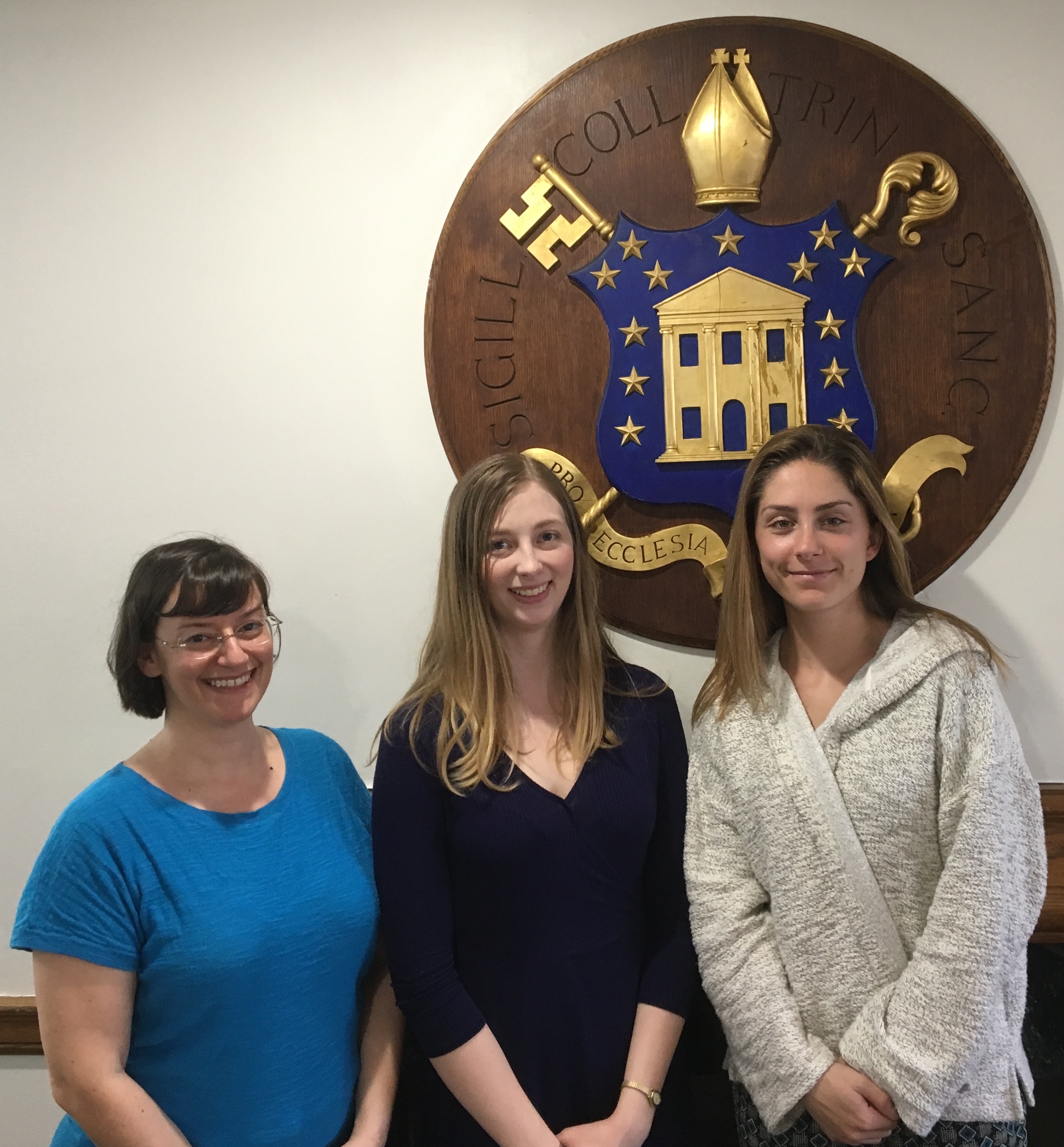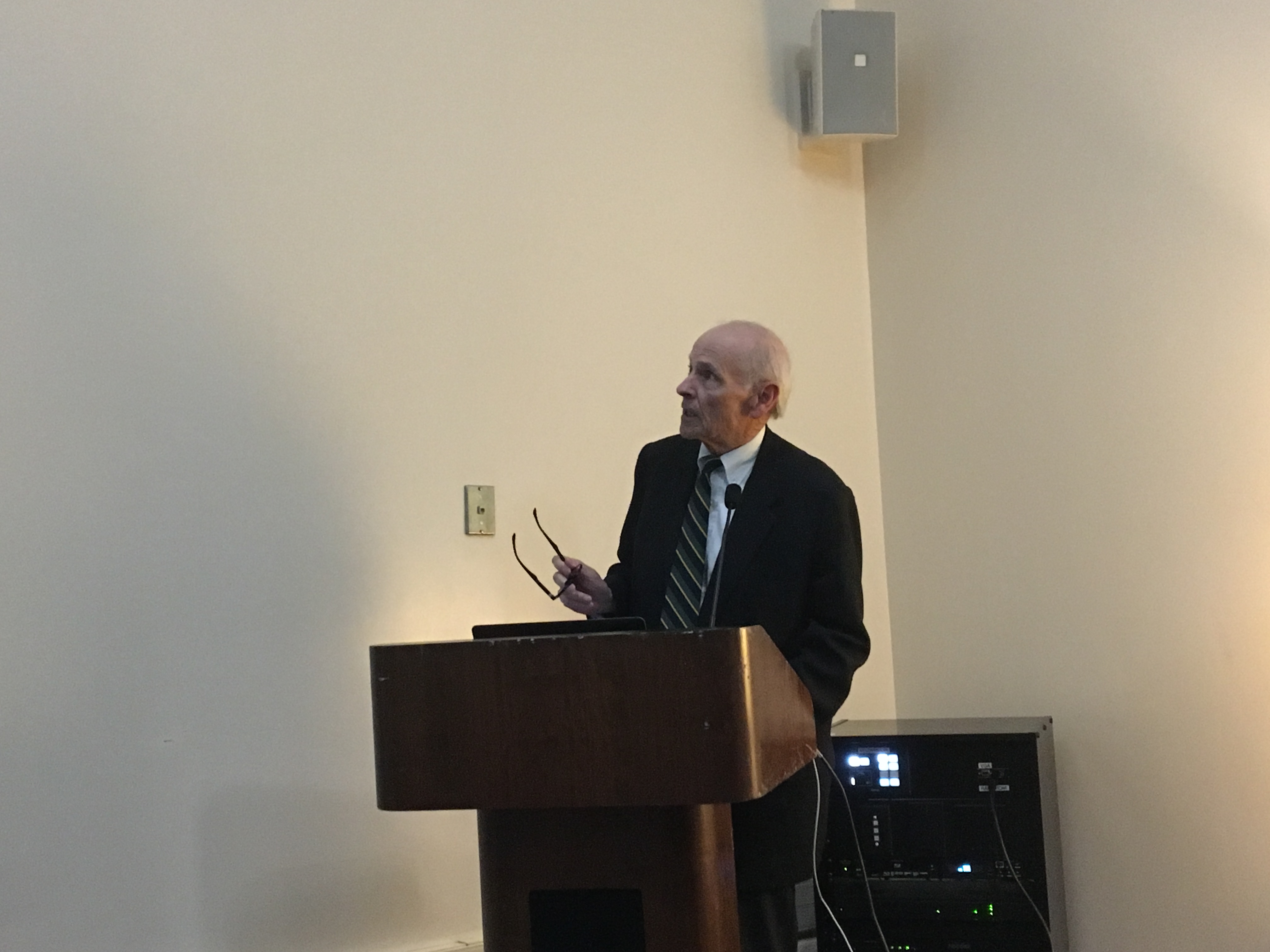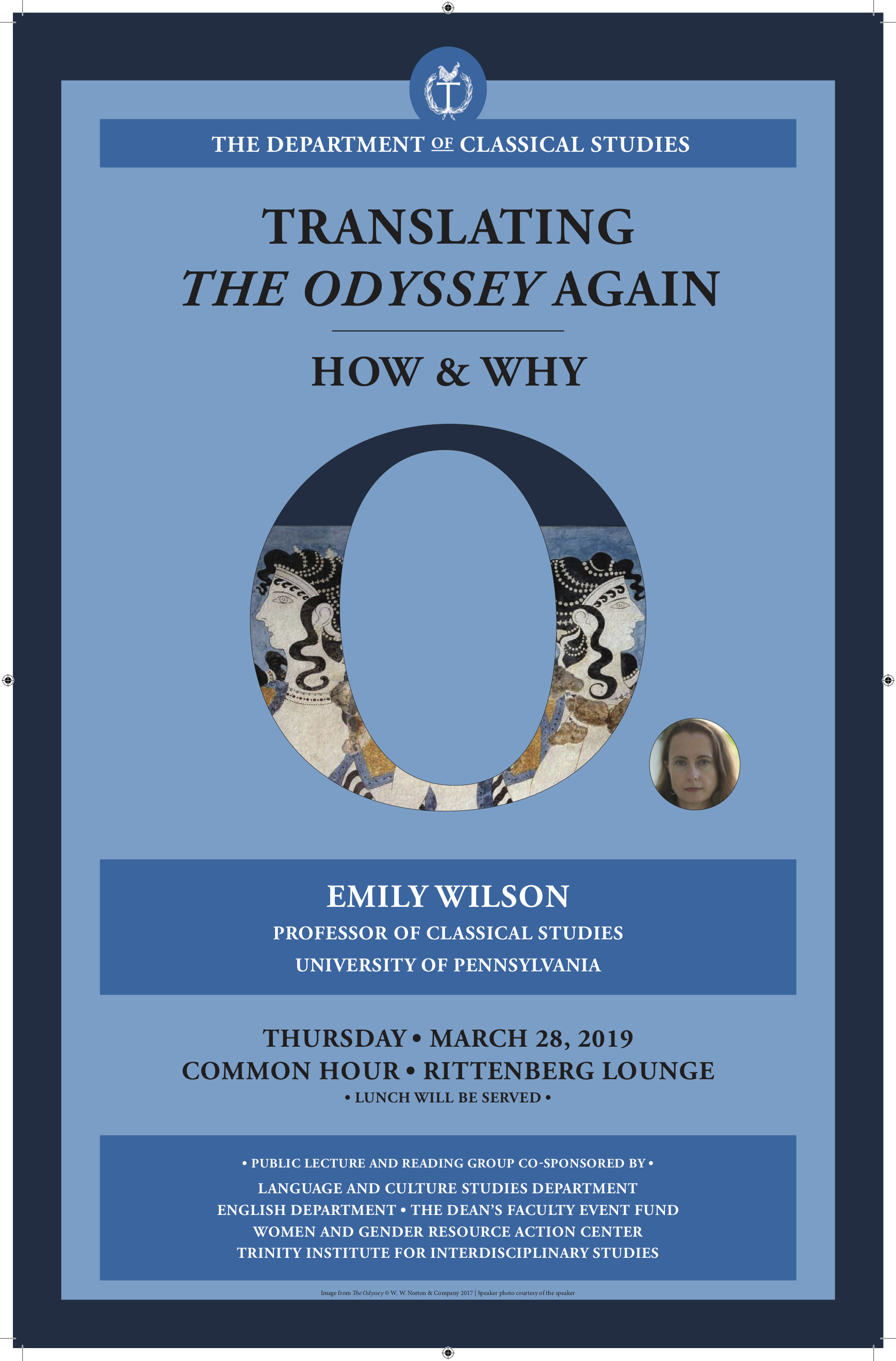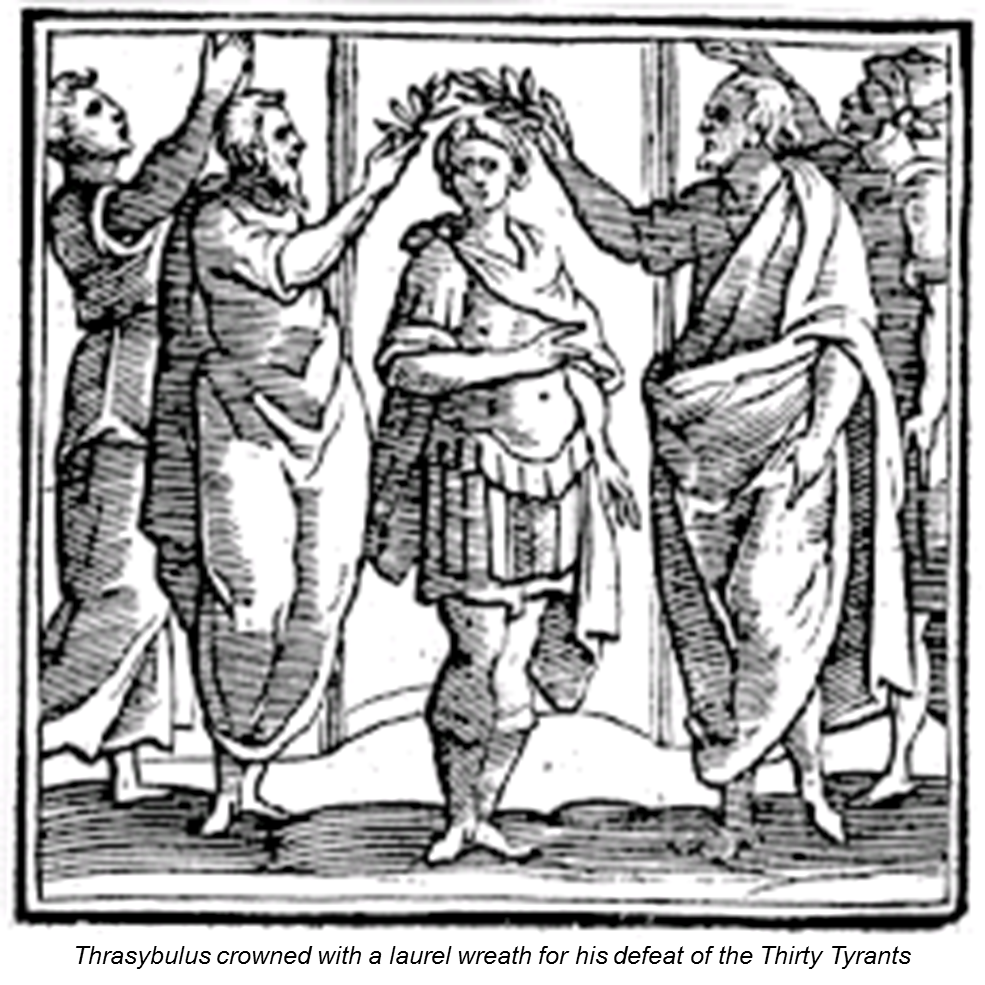 On April 23rd 2019 senior undergraduates in Trinity’s Classical Studies department presented their year-long research projects. Prof. Meredith Safran of Classical Studies mentored them.
On April 23rd 2019 senior undergraduates in Trinity’s Classical Studies department presented their year-long research projects. Prof. Meredith Safran of Classical Studies mentored them.
Morgan Hallow’s project, “Honest Ovid: Ovid’s Presence in Shakespeare’s As You Like It” examined the influence of the Roman poet Ovid’s love poetry on the English playwright William Shakespeare.
Katherine Novko discussed her research on the display practices of the Ashmolean Museum at the University of Oxford in her presentation entitled, “Classical Greece in Victorian Britain: A Case of the Ashmolean Museum.”
Nice work, Morgan and Katherine!




















